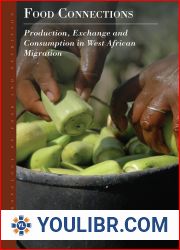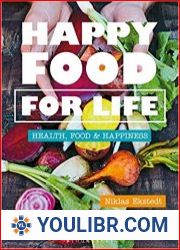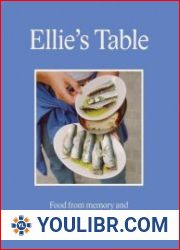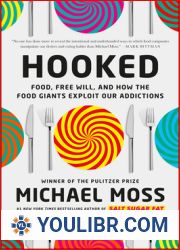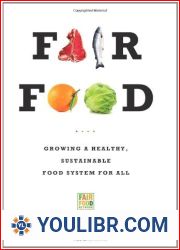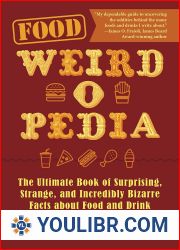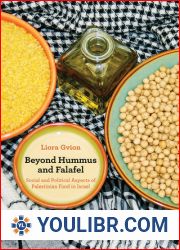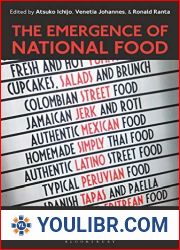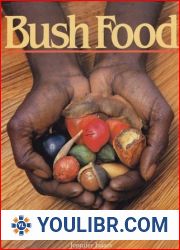
BOOKS - Food of Sinful Demons: Meat, Vegetarianism, and the Limits of Buddhism in Tib...

Food of Sinful Demons: Meat, Vegetarianism, and the Limits of Buddhism in Tibet (Studies of the Weatherhead East Asian Institute, Columbia University)
Author: Geoffrey Barstow
Year: October 24, 2017
Format: PDF
File size: PDF 2.7 MB
Language: English

Year: October 24, 2017
Format: PDF
File size: PDF 2.7 MB
Language: English

Food of Sinful Demons: Meat, Vegetarianism, and the Limits of Buddhism in Tibet In his groundbreaking study, "Food of Sinful Demons: Meat, Vegetarianism, and the Limits of Buddhism in Tibet Geoffrey Barstow delves into the complex relationship between Tibetan Buddhism and meat consumption, offering a nuanced perspective on the tension between religious ethics and cultural norms. Through a detailed analysis of debates over meat eating and vegetarianism from the 10th century to the present day, Barstow reveals the centrality of vegetarianism to Tibet's cultural history and explores how non-religious factors such as economic, environmental, and gender considerations have influenced the issue. The book begins by examining the historical context of meat consumption in Tibet, where Buddhist teachings emphasize compassion towards all living beings, yet most Tibetans, both monastic and lay, have traditionally included meat in their diets. Barstow discusses the various elements of Tibetan Buddhist thought that view meat eating as morally problematic, including monastic vows, the Buddhist call to compassion, and tantric antinomianism.
Пища грешных демонов: мясо, вегетарианство и пределы буддизма в Тибете В своем новаторском исследовании «Пища грешных демонов: мясо, вегетарианство и пределы буддизма в Тибете» Джеффри Барстоу углубляется в сложные отношения между тибетским буддизмом и мясом потребление, предлагая нюансированный взгляд на противоречие между религиозной этикой и культурными нормами. Посредством детального анализа дебатов о мясоедении и вегетарианстве с X века до наших дней Барстоу раскрывает центральную роль вегетарианства в культурной истории Тибета и исследует, как нерелигиозные факторы, такие как экономические, экологические и гендерные соображения, повлияли на проблему. Книга начинается с изучения исторического контекста потребления мяса в Тибете, где буддийские учения подчеркивают сострадание ко всем живым существам, однако большинство тибетцев, как монашествующих, так и мирян, традиционно включали мясо в свой рацион. Барстоу обсуждает различные элементы тибетской буддийской мысли, которые рассматривают мясоедение как морально проблематичное, включая монашеские обеты, буддийский призыв к состраданию и тантрический антиномизм.
Nourriture des démons pécheurs : viande, végétarisme et limites du bouddhisme au Tibet Dans son étude novatrice « Nourriture des démons pécheurs : viande, végétarisme et limites du bouddhisme au Tibet », Jeffrey Barstow approfondit la relation complexe entre le bouddhisme tibétain et la consommation de viande en proposant une vision nuancée de la contradiction entre l'éthique religieuse et les normes culturelles culturelles. Grâce à une analyse détaillée du débat sur la viande et le végétarisme du Xe siècle à nos jours, Barstow révèle le rôle central du végétarisme dans l'histoire culturelle du Tibet et explore comment des facteurs non religieux, tels que des considérations économiques, environnementales et de genre, ont influencé le problème. livre commence par une étude du contexte historique de la consommation de viande au Tibet, où les enseignements bouddhistes mettent l'accent sur la compassion pour tous les êtres vivants, mais la plupart des Tibétains, monastiques et laïcs, ont traditionnellement inclus la viande dans leur alimentation. Barstow discute de divers éléments de la pensée bouddhiste tibétaine qui considèrent l'alimentation de la viande comme moralement problématique, y compris les vœux monastiques, l'appel bouddhiste à la compassion et l'antinomisme tantrique.
Alimento de los demonios pecaminosos: carne, vegetarianismo y límites del budismo en el Tíbet En su estudio pionero «Alimento de los demonios pecaminosos: carne, vegetarianismo y límites del budismo en el Tíbet», Jeffrey Barstow profundiza en la compleja relación entre el budismo tibetano y la carne consumo, ofreciendo una visión matizada de la contradicción entre la ética religiosa y las normas culturales. A través de un análisis detallado del debate sobre la alimentación y el vegetarianismo desde el siglo X hasta la actualidad, Barstow revela el papel central del vegetarianismo en la historia cultural del Tíbet y explora cómo factores no religiosos como las consideraciones económicas, ambientales y de género han influido en el problema. libro comienza estudiando el contexto histórico del consumo de carne en el Tíbet, donde las enseñanzas budistas enfatizan la compasión por todos los seres vivos, sin embargo, la mayoría de los tibetanos, tanto monásticos como laicos, tradicionalmente han incluido la carne en su dieta. Barstow discute varios elementos del pensamiento budista tibetano que ven la alimentación de carne como moralmente problemática, incluyendo los votos monásticos, la llamada budista a la compasión y el antinomismo tántrico.
Alimentos de demónios pecadores: carne, vegetarianismo e limites budistas no Tibete Em seu estudo inovador «Alimentos de demónios pecadores: carne, vegetarianismo e limites budistas no Tibete», Jeffrey Barstow aprofundou-se na complexa relação entre o budismo tibetano e o consumo de carne, oferecendo uma visão nublada da contradição entre a ética religiosa e as normas culturais. Através de uma análise detalhada do debate sobre a carne e o vegetarianismo do século XX. Até hoje, Barstow revela o papel central do vegetarianismo na história cultural do Tibete e investiga como fatores não religiosos, tais como considerações econômicas, ambientais e de gênero, influenciaram o problema. O livro começa com um estudo do contexto histórico do consumo de carne no Tibete, onde os ensinamentos budistas enfatizam a compaixão por todos os seres vivos, mas a maioria dos tibetanos, freiras e laicos, tradicionalmente incluiu a carne na sua dieta. Barstow discute vários elementos do pensamento budista tibetano que consideram a carne moralmente problemática, incluindo os votos de freiras, o apelo budista à compaixão e o antianomismo tantríaco.
Cibo dei demoni peccatori: carne, vegetarianismo e limiti del buddismo in Tibet In uno studio innovativo, «Cibo dei demoni peccatori: carne, vegetarianismo e limiti del buddismo in Tibet», Jeffrey Barstow approfondisce le complesse relazioni tra buddismo tibetano e carne consumo, offrendo una visione sfumata della contraddizione tra etica religiosa e normative culturali. Attraverso un'analisi dettagliata del dibattito sulla carne e il vegetarianismo dal X secolo ad oggi, Barstow rivela il ruolo centrale del vegetarianismo nella storia culturale del Tibet e indaga come fattori non religiosi, come le considerazioni economiche, ambientali e di genere, abbiano influenzato il problema. Il libro inizia studiando il contesto storico del consumo di carne in Tibet, dove gli insegnamenti buddisti sottolineano la compassione per tutti gli esseri viventi, ma la maggior parte dei tibetani, sia monaci che laici, tradizionalmente includevano la carne nella loro dieta. Barstow discute di vari elementi del pensiero buddista tibetano che considerano la macellazione come moralmente problematico, compresi i voti monastici, l'appello buddista alla compassione e l'anti-nomismo tantrico.
Die Nahrung der sündigen Dämonen: Fleisch, Vegetarismus und die Grenzen des Buddhismus in Tibet In seiner bahnbrechenden Studie „Die Nahrung der sündigen Dämonen: Fleisch, Vegetarismus und die Grenzen des Buddhismus in Tibet“ vertieft Jeffrey Barstow die komplexe Beziehung zwischen tibetischem Buddhismus und Fleischkonsum und bietet einen differenzierten Blick auf den Widerspruch zwischen religiöser Ethik und kulturellen Normen. Durch eine detaillierte Analyse der Debatte über Fleischessen und Vegetarismus vom 10. Jahrhundert bis zur Gegenwart deckt Barstow die zentrale Rolle des Vegetarismus in der Kulturgeschichte Tibets auf und untersucht, wie nichtreligiöse Faktoren wie ökonomische, ökologische und geschlechtsspezifische Überlegungen das Thema beeinflusst haben. Das Buch beginnt mit einer Untersuchung des historischen Kontextes des Fleischkonsums in Tibet, wo buddhistische hren Mitgefühl für alle bewesen betonen, aber die meisten Tibeter, sowohl Mönche als auch Laien, haben traditionell Fleisch in ihre Ernährung aufgenommen. Barstow diskutiert die verschiedenen Elemente des tibetisch-buddhistischen Denkens, die Fleischessen als moralisch problematisch betrachten, einschließlich monastischer Gelübde, buddhistischer Ruf nach Mitgefühl und tantrischer Antinomismus.
''
Günahkâr Şeytanların Yiyeceği: Et, Vejetaryenlik ve Tibet'te Budizmin Sınırları "Günahkar Şeytanların Yiyeceği: Et, Vejetaryenlik ve Tibet'te Budizmin Sınırları'adlı çığır açan çalışmasında Geoffrey Barstow, Tibet Budizmi ile et arasındaki karmaşık ilişkiyi inceliyor Tüketim, dini etik ve kültürel normlar arasındaki gerginliğe nüanslı bir bakış açısı sunuyor. Barstow, 10. yüzyıldan günümüze et yeme ve vejetaryenlik hakkındaki tartışmaların ayrıntılı bir analizini yaparak, vejetaryenliğin Tibet kültür tarihindeki merkezi rolünü ortaya koyuyor ve ekonomik, çevresel ve cinsiyet gibi dini olmayan faktörlerin sorunu nasıl etkilediğini araştırıyor. Kitap, Budist öğretilerin tüm canlılar için şefkati vurguladığı Tibet'teki et tüketiminin tarihsel bağlamını inceleyerek başlar, ancak hem manastır hem de meslekten olmayan Tibetlilerin çoğu geleneksel olarak diyetlerine et eklemiştir. Barstow, et yemeyi ahlaki açıdan sorunlu olarak gören Tibet Budist düşüncesinin manastır yeminleri, Budist merhamet çağrısı ve tantrik antinomizm gibi çeşitli unsurlarını tartışıyor.
طعام الشياطين الخاطئة: اللحوم والنباتية وحدود البوذية في التبت في دراسته الرائدة «طعام الشياطين الخاطئة: اللحوم والنباتية وحدود البوذية في التبت»، جيفري باريه يتعمق في العلاقة المعقدة بين البوذية التبتية واستهلاك اللحوم، مما يقدم منظورًا دقيقًا للتوتر بين الأخلاق الدينية والأعراف الثقافية. من خلال تحليل مفصل للمناقشات حول أكل اللحوم والنباتية من القرن العاشر إلى الوقت الحاضر، يكشف بارستو عن الدور المركزي للنباتية في التاريخ الثقافي التبتي ويستكشف كيف أثرت العوامل غير الدينية مثل الاعتبارات الاقتصادية والبيئية والجنسانية على المشكلة. يبدأ الكتاب بفحص السياق التاريخي لاستهلاك اللحوم في التبت، حيث تؤكد التعاليم البوذية على التعاطف مع جميع الكائنات الحية، ومع ذلك فقد أدرج معظم التبتيين، الرهبان والعاديون، اللحوم تقليديًا في نظامهم الغذائي. يناقش بارستو عناصر مختلفة من الفكر البوذي التبتي التي تنظر إلى أكل اللحوم على أنه مشكلة أخلاقية، بما في ذلك الوعود الرهبانية، والدعوة البوذية للرحمة، ومعاداة التانترية.







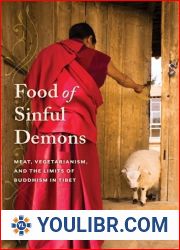
 49
49  3 TON
3 TON





